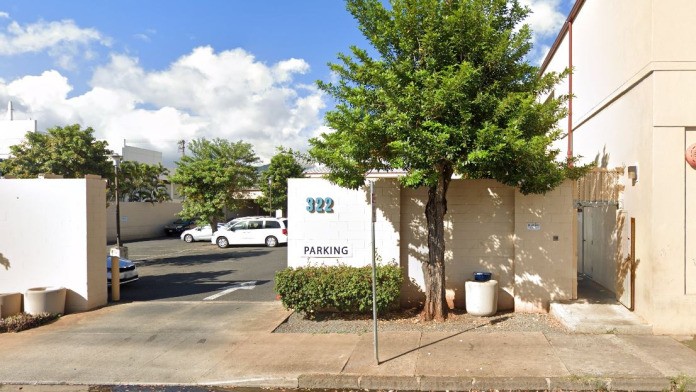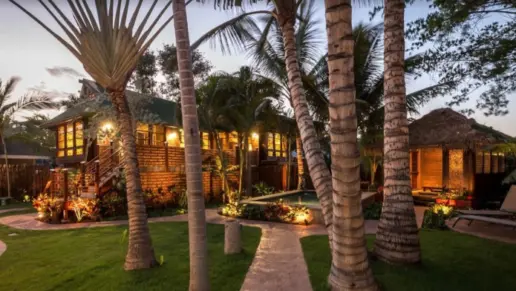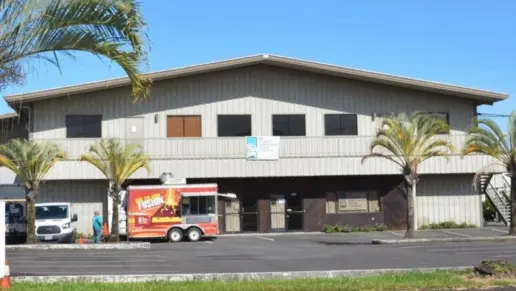About The Salvation Army – Adult Rehabilitation Center
The Salvation Army has an Adult Rehabilitation Center located in Honolulu, Hawaii. This facility offers treatment to men between the ages of 21 to 65 who are struggling with substance abuse disorders. They’re a work therapy and faith based treatment center. The level of care offered at this facility is residential treatment and the duration of stay is typically up to one hundred and eighty days. While you are here they provide spiritual counseling, work therapy, help you develop work as well as social skills, and help you develop stability.
Residential care at this facility is available at no cost to you. Some fees may accrue for specialized services.
Upon arrival at this facility, they’ll require you to take a breathalyzer and a drug test and it is required to participate in all the program activities and have the ability to work at most eight hours a day. This is to help you learn to develop a healthy day to day structure and learn to manage responsibilities like employment and more importantly learning to also take time to care for yourself.
Their faith-based approach will help you create or strengthen a stronger connection to God and improve your spiritual wellness. They also have worship services and counseling sessions that will be part of your treatment plan weekly. This is a holistic approach and can help you gain a better understanding of yourself and others as well as your journey in recovery.
Work therapy at this facility will help increase productivity and more importantly it can help you strengthen your social and communication skills with others. This can also help strengthen employment opportunities.
Latest Reviews
Rehab Score
Gallery

Location
Other Forms of Payment
Private insurance refers to any kind of healthcare coverage that isn't from the state or federal government. This includes individual and family plans offered by an employer or purchased from the Insurance Marketplace. Every plan will have different requirements and out of pocket costs so be sure to get the full details before you start treatment.
Self-pay involves paying for treatment out of your own pocket. You can use savings or credit, get a personal loan, or receive help from family and friends to fund your treatment. If you don't have insurance or your insurance plan doesn't cover a specific program, self-pay can help ensure you still get the care you need.
Financial aid can take many forms. Centers may have grants or scholarships available to clients who meet eligibility requirements. Programs that receive SAMHSA grants may have financial aid available for those who need treatment as well. Grants and scholarships can help you pai for treatment without having to repay.
Sliding scale payments are based on a client's income and family size. The goal is to make treatment affordable to everyone. By taking these factors into account, addiction recovery care providers help ensure that your treatment does not become a financial burden to you or your family, eliminating one barrier to care.
Medicare is a federal program that provides health insurance for those 65 and older. It also serves people under 65 with chronic and disabling health challenges. To use Medicare for addiction treatment you need to find a program that accepts Medicare and is in network with your plan. Out of pocket costs and preauthorization requirements vary, so always check with your provider.
Medicaid is a state based program that helps lower-income individuals and families pay for healthcare. Medicaid covers addiction treatment so those enrolled can use their coverage to pay for rehab. When a program accepts Medicaid the client often pays very little or nothing out of their own pocket.
Addiction Treatments
Levels of Care
Treatments
The goal of treatment for alcoholism is abstinence. Those with poor social support, poor motivation, or psychiatric disorders tend to relapse within a few years of treatment. For these people, success is measured by longer periods of abstinence, reduced use of alcohol, better health, and improved social functioning. Recovery and Maintenance are usually based on 12 step programs and AA meetings.
Drug rehab in Hawaii is for individuals suffering from substance use disorders. Treatment addresses the many issues involved with addiction, typically through a combination of medical and psychotherapy treatments.
Substance rehabs focus on helping individuals recover from substance abuse, including alcohol and drug addiction (both illegal and prescription drugs). They often include the opportunity to engage in both individual as well as group therapy.
Programs


Clinical Services
Group therapy is any therapeutic work that happens in a group (not one-on-one). There are a number of different group therapy modalities, including support groups, experiential therapy, psycho-education, and more. Group therapy involves treatment as well as processing interaction between group members.
In individual therapy, a patient meets one-on-one with a trained psychologist or counselor. Therapy is a pivotal part of effective substance abuse treatment, as it often covers root causes of addiction, including challenges faced by the patient in their social, family, and work/school life.
Motivational interviewing is simply a conversation about change. The therapist seeks to encourage the client's personal motivation to change and collaborate with them to make a commitment to change. This technique is often used in drug rehab therapy in Hawaii.
During trauma therapy in Hawaii, your therapist helps you reclaim your life after witnessing or experiencing a traumatic event. Therapy assists you in processing the memories and fostering emotional healing. This helps to build resilience so you can navigate future challenges more successfully.
During couples therapy in Hawaii, your therapist may borrow techniques from multiple forms of therapy based on your needs. Methods may include cognitive behavioral therapy and emotionally focused therapy. The ultimate goal of treatment is a stronger relationship.
Research clearly demonstrates that recovery is far more successful and sustainable when loved ones like family members participate in rehab and substance abuse treatment. Genetic factors may be at play when it comes to drug and alcohol addiction, as well as mental health issues. Family dynamics often play a critical role in addiction triggers, and if properly educated, family members can be a strong source of support when it comes to rehabilitation.
Life skills trainings involve all the skills a person must have in order to function successfully in the world. These include time management, career guidance, money management, and effective communication. Truly successful addiction recovery is based on the ability to not only live substance-free, but to thrive. Life skills teaches the practical necessities of functioning in society, which sets clients up for success in life, and therefore sobriety.
Nutrition therapy in Hawaii empowers you to gain control of your nutrition that has been thrown off balance by addiction. You'll discover what foods are best for recovery and how to restore and maintain nutritional balance.
Recreational therapy supports addiction recovery by helping you engage in activities that improve your physical and mental health. Participating in creative arts, nature activities, and sports helps reduce cravings, focus your attention on positive things, alleviate stress, and build a supportive community.
Accreditations

State Licenses are permits issued by government agencies that allow rehab organizations to conduct business legally within a certain geographical area. Typically, the kind of program a rehab facility offers, along with its physical location, determines which licenses are required to operate legally.
State License: Hawaii
Contact Information
322 Sumner Street
Honolulu, HI 96817

